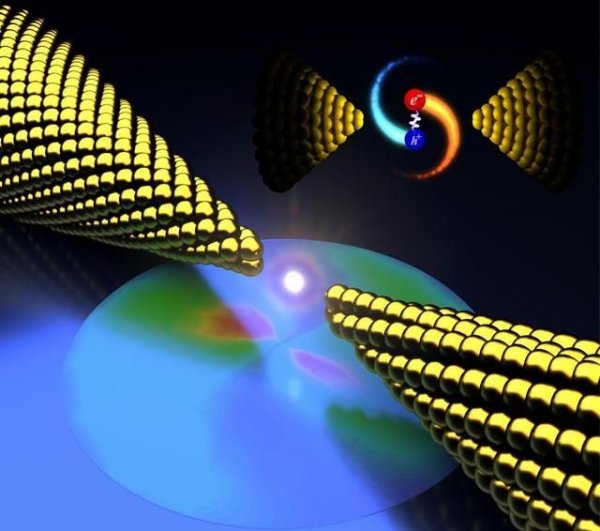
Privacy statement: Your privacy is very important to Us. Our company promises not to disclose your personal information to any external company with out your explicit permission.

Physicists at Rice University have discovered that plasma metals can be prompted to generate "hot carriers", which in turn unexpectedly emit bright light in the nanoscale gap between the electrodes. This phenomenon may have application prospects for photocatalysis, quantum optics and optoelectronics.

The latest research paper was published in the recent "Nano Express" of the American Chemical Society. The first author Longji Cui and the second author Yunxuan Zhu are Chinese doctoral scholars.
Physicists are not surprised to see the light emitted by nano experiments. However, when the brightness of the lamp was 10,000 times higher than expected, they caught their attention.
The researchers discovered that this huge emission was caused by a nanoscale gap between two electrodes made of plasma materials, especially gold.

A few years ago, the laboratory discovered that excited electrons cross the gap. This phenomenon is called the tunneling effect, and the voltage generated is greater than the voltage in the metal platform without the gap.
In this new study, when these hot electrons are generated by the electrons that drive tunneling between the gold electrodes, their recombination with holes emits bright light, and the greater the input voltage, the brighter the light.
The effect depends on the plasmon of the metal, that is, the fluctuation of energy flowing across its surface. The researchers said: "People have already explored that plasmons are important for electroluminescence, but first they do not generate these hot carriers." "Now, we know that plasmons play a variety of roles in this process. Character."

The researchers made several metals with nano-gap, microscopic, bow-tie-like electrodes, allowing them to perform electron transmission and spectral analysis at the same time. Among the electrodes, gold is the electrode with the best performance, which includes chromium and palladium compounds that suppress plasmons. These compounds can help determine the role of plasmons in this phenomenon.
The researchers say: "If the only role of plasmons is to help couple out the light, the difference between using materials like gold and palladium may be 20 or 50 times." "This fact tells you that something is happening Different things."
The reason is that plasmons decay "almost immediately" into hot electrons and holes. "This constant agitation, using electric current to kick the material in, generates more electrons and holes, giving us this steady-state carrier heat distribution, and we can keep it for a few minutes at a time."
Through the emission spectrum, the researchers' measurements showed that the hot carriers were indeed very hot, reaching temperatures above 3,000 degrees Fahrenheit, while the electrodes remained relatively cool, even if the input voltage was only about 1 volt.
This discovery may be very useful for the development of optoelectronics and quantum optics, which studies the light-matter interaction that disappears on a small scale. "In terms of chemistry, the idea of having a very hot carrier is exciting." "This means you may make certain chemical processes run faster than usual.
The research team said: "There are many studies interested in plasma photocatalysis. In this case, light can be emitted to excite plasmons, and the heat carriers in these plasmons can produce interesting chemical reactions." In principle, plasmons can be excited electrically, and the heat carriers they generate can undergo interesting chemical reactions."
Reference: Longji Cui et al, Electrically Driven Hot-carrier Generation and Above-threshold Light Emission in Plasmonic Tunnel Junctions, Nano Letters (2020).
November 04, 2024
November 12, 2024
البريد الإلكتروني لهذا المورد
November 04, 2024
November 12, 2024

Privacy statement: Your privacy is very important to Us. Our company promises not to disclose your personal information to any external company with out your explicit permission.

Fill in more information so that we can get in touch with you faster
Privacy statement: Your privacy is very important to Us. Our company promises not to disclose your personal information to any external company with out your explicit permission.